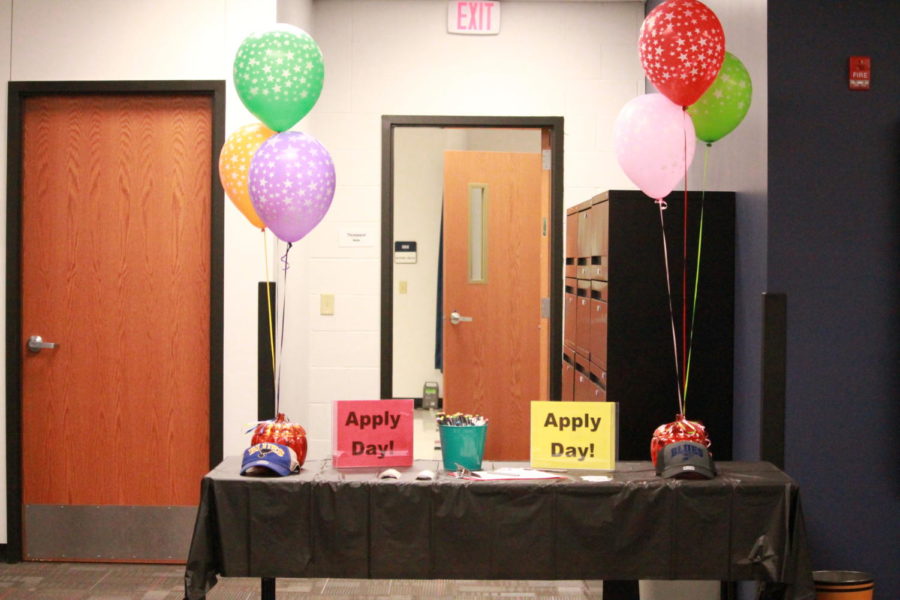The College Crisis
Many young students worry about their college career
Students worry about getting into a good college far too early.
In the modern American school system, it seems as if the prospect of college keeps rearing its frightening head from a young age. In elementary school, scary thoughts of middle school washed over our minds. During middle school, high school rumors raced around the halls. But throughout our entire lives, college has been a shady umbrella over our heads, blocking light above.
As a teenager, it’s hard not to think about what in the world you’re going to do after you leave high school. Will you go to college? Will you take a gap year? Will you stay in Missouri or go out of state? The countless questions run over and over on a treadmill in your brain. But still, it has yet to tire. Of course, once you reach your junior or senior year it is necessary to form at least a rough plan about your future. But what about earlier? Will elementary school students have to cram their schedules with extracurriculars? Should seventh graders start studying for the ACT? If the college crisis started at a more reasonable age, students might be more mature and be better suited to form their future.
To start off, it’s no secret that college is expensive. According to the Washington Post, college tuition costs over 100 percent more than it did in 2001. Not to mention the additional costs such as housing, food, textbooks, and transportation. If you don’t start off saving at a young age, you might have to opt to take out a student loan. But much to our dismay, student loans can take up to 21 years to pay off, according to U.S. News.
Now, there’s nothing wrong with having to take out a student loan. For example, if you need to take out a student loan, you wouldn’t have to have a credit history when most loans require one to. Additionally, you wouldn’t have to ask someone to cosign the loan, a favor you would normally have to ask for while taking out a regular loan.
Furthermore, another scary part of preparing for college is taking the ACT. This entrance exam is taken by many high school students nationwide each year. The average age to take the ACT is 16-17 years old, or juniors. Most people take the ACT their junior year in high school because many of the material you are tested on in the ACT will be taught by then.
When I was in middle school, we were about to get out of school on a Friday when my friends and I started to talk about what we were doing that weekend. One of my friends then started to pour out her anxiousness for the ACT.
It may seem crazy, but each year, 40,000 middle school students take the ACT. Some might take the test to get into an academic program. Others may want to familiarize themselves with the exam. But whatever the reason may be, are there any actual benefits to taking the ACT so early? Taking a preparatory college exam early on may put you in a mindset to that college is something you need to start worrying about when you’re 12. Moreover, a college will not look at your score from when you were in middle school because it will not be relevant later on when you’re in high school.
Constantly worrying about college while you’re still young could potentially eat up your childhood. If you spend the entirety of middle school and the first two years of high school worrying about college, you may not be able to experience your high school career completely.
When you look back on your teenage years, wouldn’t you want to be able to say that you had many accomplishments and were able to let go for a bit? Or would want to look back at the time in freshman year stayed up countless nights reading over an ACT prep book?
College is a very important aspect of our lives but it should not become our whole lives. When stressing about textbooks, report, and college prep books, you’re bound to get a papercut.


